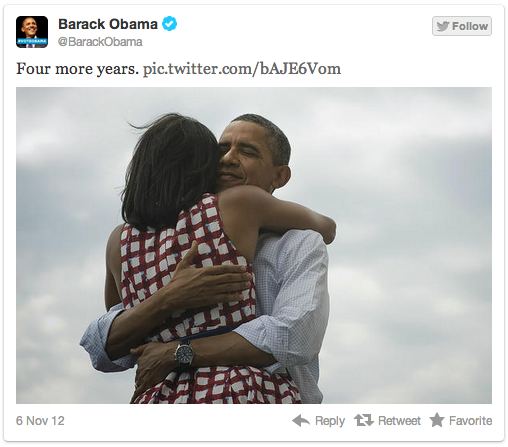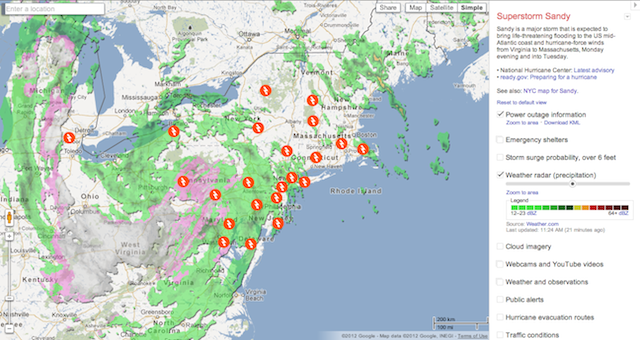The U.S. presidential election is finally over, and President Barack Obama has been elected to serve a second term as the leader of the free world. When an event as momentous for the world as this transpires, even the realm of tech cannot help but participate in the commentary.
Indeed, tech outlets came up to bat. For all the hand-wringing that’s supposed to be going on in journalism, tech is certainly one beat that’s got a good grasp on what it means to cover news as it breaks, and even put a creative spin on technically unrelated—though still universally meaningful—events such as the 2012 Presidential Elections. Examining a few outlets’ coverage of the elections last night can give us an idea of how these outlets cover “tech news for humans” on a regular, day-to-day basis.
Right away, TechCrunch (and it’s worth noting, other outlets as well) had a piece on what Obama’s victory means for tech. The article outlines the President’s technology agenda, including what tech-savvy folk can look forward to in the next four years with Obama at the helm. It’s an arguably an obvious article, but nonetheless an important one as technologists are directly reminded how this election affects them and their interests.
TechCrunch also kept its pulse on the smaller pieces of news, popping them as soon as they emerged. It reported on how Obama’s tweet—a photo of him and his wife hugging with the description “four more years”—rapidly became the most retweeted tweet of all time (600K retweets at last count). It noted how Obama sent out an email announcing his win to millions of supporters, even before he went onstage to give his acceptance speech.
There was once a time when the public had to gather in front of a television screen (or wait for a newspaper the next morning, if you didn’t have a TV set) to hear about current events. Today, this is no longer the case, and I think we’re in an ever better position for it. The media might appear to be expressing endless distress about how information is disseminated to the masses, but I suspect that no one actually wants to go back to the way things were.
It was refreshing to see TechCrunch situate the dramatic effect of technology in context:
“The 2012 election was a whole different ballgame thanks to technology. We gathered together on the second screen through the debates, polls, and the election itself today.
Social media isn’t just for campaigning or communicating with the tech-savvy audience anymore. It has become possibly the most vivid and persuasive way candidates interact with their supporters. And now email has become so ubiquitous that it can deliver messages of the greatest importance, like accepting the presidency of the United States of America.
…Technology lets us know more about those we elect, so we can make better decisions about whether to re-elect them.”
For more thought-provoking analysis by the outlet, TechCrunch’s commentary on The New York Times election statistician Nate Silver’s success is worth looking into. It questions whether it would be better for television networks to replace their pundits with competitor statisticians, but points out that mathematicians’ complex models are not easily understood by a general audience, and may not be sustainable.
One tech outlet whose coverage disappointed me slightly, however, was Engadget. The blog is an entrenched publication in tech, though they were conspicuously quiet about election coverage, preferring to stick to hard gadget news. I understand that they may not feel the elections was within their scope, but to ignore the event outright seemed problematic.
As elections night wore on, I kept one eye on Buzzfeed Tech for quick bites of commentary on the outcome. Not only were its posts hilariously entertaining, it actually traced the trajectory of the event in a way that made you reflect on how people thought about this year’s elections. Here are some choice articles Buzzfeed published: 37 People Who Say They’re Moving To Australia If Obama Wins. 17 People Talking About Assassinating The President. Obama’s Final Campaign Stop: Reddit. What I appreciate about Buzzfeed is how they are totally transparent about the mix of viral posts and honest (and caustic) tech commentary that they publish.
There’s no denying that at this point, tech outlets must participate discussions that impact the world. After all, tech is intimately entwined with the platforms people use to break news today (Twitter, Facebook, email, and other social media). If humans never had an inclination towards tech, we would have never had access to these new and more direct avenues of sharing news either.


